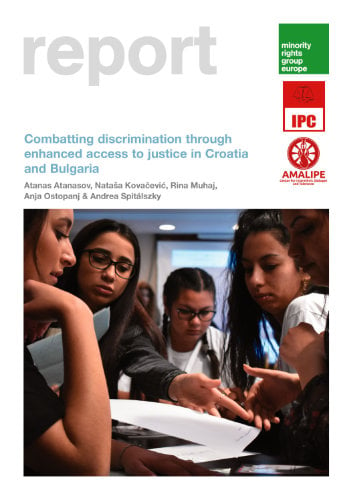
Combatting discrimination through enhanced access to justice in Croatia and Bulgaria
‘Equality for Roma through Enhanced Legal Access’ (ERELA) is the result of a 2-year collaboration between Minority Rights Group, Amalipe Centre for Interethnic Dialogue, Information Legal Centre and local Roma communities. Funded by the European Union, this report details the many areas of discrimination and obstacles faced by Roma people in Bulgaria and Croatia, especially when seeking access to justice. Lessons learned from the fieldwork are summarized here based on real-life cases.The experience of discrimination is widespread and routinely felt by Roma people in Bulgaria and Croatia, and it is usually underpinned by negative attitudes and prejudices. The identified cases of discrimination discussed in this report concern various areas of daily life including employment, education, social welfare, health care and access to various services.Despite the high number of well-documented occurrences, discrimination typically goes unreported in these countries, not least because discriminated Roma are often unaware of the available legal remedies or are afraid of the negative consequences. This report shows feasible ways in which the efficiency of the system established for the protection of Roma equality can be enhanced.In an effort to improve Roma access to social justice, the ERELA project supported a bespoke training programme on national anti-discrimination legislation for Roma civil society organizations (CSOs), legal practitioners and other Roma activists. The initial training provided participants with the necessary skills and knowledge to support people experiencing discrimination. By conducting regular field visits, trained Roma mediators were able to share this knowledge with members of local Roma communities and raise awareness of discrimination as well as available legal remedies. In addition, training helped participants better navigate legal challenges and develop potential solutions in discrimination cases.This report is an invaluable tool for activists, campaigners and action researchers seeking to raise awareness among, and about, Roma rights and access to justice. Furthermore, the outcomes and recommendations offered by the authors could potentially be applied and implemented in other European contexts where Roma face similar difficulties in their access to justice.